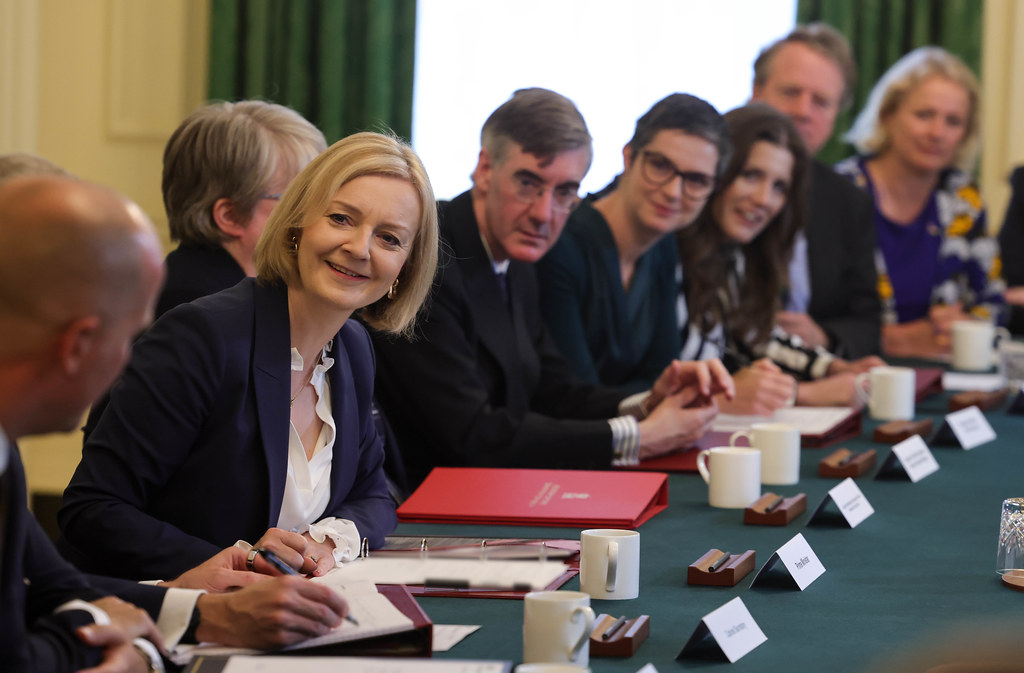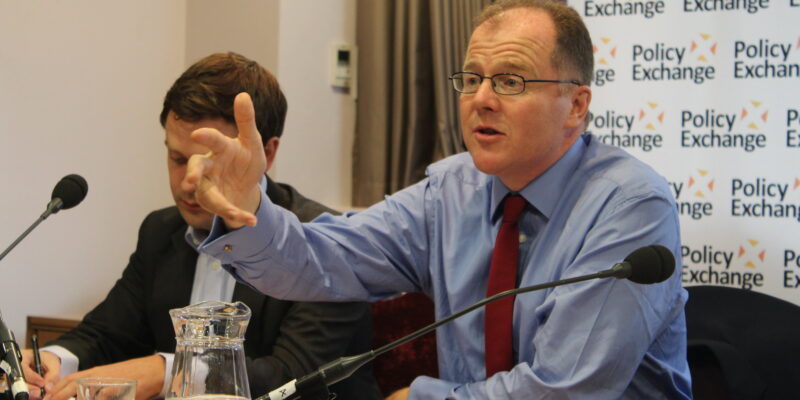The reinventions of Liz Truss: is this ‘iron lady’ for turning?
John Palmer asks whether, in spite of all the Thatcherite rhetoric that dominated her election campaign, the new Prime Minister will quickly have to adapt to the realities of the UK’s circumstances and govern more pragmatically.

Most newly elected Prime Ministers undergo some kind of re-invention of themselves and of their political agendas. Sometimes politicians adopt in office policies they have long supported but about which they kept a tactical silence when in opposition.
Prime Minister Truss, although a one-time ‘Remainer’, does not fall into this camp. While campaigning for the Conservative Party’s support to replace Boris Johnson as Prime Minister, she nailed her ideological flag stance on two main issues: ending a ‘Big State’ approach to economic and social policy. She also expressed her willingness to challenge the EU on the terms of the original Brexit agreement which regulates Northern Ireland’s unique participation in both the Single Market and Customs Union and in the UK.
On both counts Truss may well disappoint the ideological zealots her Tory admirers. Far from abandoning the deployment of ‘state handouts’ to tackle key social problems, the government seems set on an unprecedented level of government borrowing to fund protection for both families and businesses from the apocalyptic increase in fuel duties we face imminently.
This may prove to be only one such radical ‘course adjustment’ she has to make in the weeks ahead. Truss, while a leadership candidate, spoke about her determination to force significant changes to the terms of the UK/EU Brexit agreement. This even hinted at a willingness to unilaterally break the legal terms of the agreement with the EU if changes to the ‘Northern Ireland’ Protocol were not to her satisfaction.
This approach was strongly canvassed by one of her most enthusiastic supporters for the Tory leadership, Lord David Frost. Formerly the British government’s chief negotiator of that NI Protocol, Lord Frost seemed likely to play a key role in the new government. It is significant, however, that he has now declined Truss’s repeated offers of a ministerial role.
Could it be that he suspects the PM will be ready to strike a compromise with Brussels, at least to more than she has let on till now? As the former foreign secretary, she knows all too well that the US government is determined that British Brexitry should not be allowed to threaten the Good Friday Northern Ireland Peace treaty.
But, of more immediate concern to Whitehall, the European Commission has left no doubt than a unilateral renunciation of the UK/EU agreement on Brexit will be challenged in the European Court of Justice but might trigger an actual trade war with the UK. That at a time cross Channel chaos and when the UK economy seems heading to recession and falling living standards.
The actual evidence shows that – overall – the Northern Ireland Protocol has had a massive positive impact on the NI economy. Northern Ireland has gone from being the slowest growing region of the UK economy to the highest. The reason no secret. It is the result of Northern Ireland’s unique membership of both the UK market and the EU Single Market/Customs union.
Northern Irish exports to the EU are rising rapidly, so too is inward investment from the EU. No wonder the Scottish Government openly proclaims its intention to take Scotland down the same route after independence. The Welsh government – while advocating a federal Anglo-Welsh constitution rather than independence – also wants the earliest possible access to the SM/CU.
This is the worst possible time for the Labour Party leadership to throw in the towel and resort to “Omerta” over the disaster of the Tory Brexit. Liz Truss has been invited to a special ‘Security Summit’ of EU member states and potential candidate member states from Ukraine, the Balkans and the Caucasus. She will be the only leader present – even including the Hungarian Premier – who seems willing to countenance a more distant rather than a closer relationship to the EU.
John Palmer is the former Europe editor of the Guardian and a member of the Another Europe Is Possible National Committee.
September 7, 2022
Brexit Spotlight is run by Another Europe Is Possible. You can support this work by joining us today. The website is a resource to encourage debate and discussion. Published opinions do not necessarily represent those of Another Europe.





